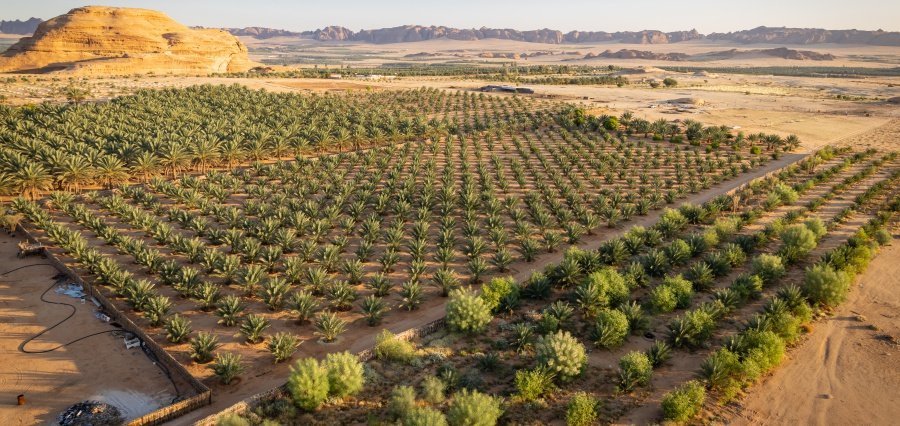Saudi Arabia has highlighted a big investment gap of SR37bn ($10 billion) in its agriculture sector, and invited the private sector to take a more active role in assisting the deficit to be erased. It was reported that the announcement was made by Assistant Deputy Minister for Agriculture Affairs, Sulaiman Al-Khateeb, before the 41st Saudi Agricultural Exhibition held at Riyadh.
Al-Khateeb emphasized the importance of private sector investment in priority areas, like plant production, animal husbandry, fisheries, and agricultural processing, which will be a critical priority for attaining targets set by the National Agriculture Strategy 2034. These shall become crucial to achieving food self-sufficiency and sustainability in keeping with Saudi Vision 2030.
While Saudi Arabia has an arid climate with almost 90 percent of the land classified as desert, the country is working towards an agricultural boom to increase domestic crop production and reduce reliance on food imports. The Kingdom has already been pretty successful in achieving self-sufficiency in some products, such as dates, fresh dairy, and table eggs, according to the General Authority for Statistics’ Agricultural Statistics Publication.
The government strategy for food covers the management of sustainable resources, innovation, and the enhancement of contributions by the agricultural sector in terms of value. Al-Khateeb said that there are several investment opportunities, and one of these is SR4.1 billion to be spent on integrated facilities designed for the production and processing of vegetables like potatoes, tomatoes, strawberries, onions, and leafy greens.
Further investment prospects include SR2.1 billion for citrus and mango production, SR690 million for seed and seedling facilities, and SR8.9 billion for intensive livestock breeding projects. Additionally, there are opportunities valued at SR5.4 billion in poultry farming and by-product utilization, as well as SR7 billion in aquaculture initiatives, covering shrimp and algae farming.
Al-Khateeb also mentioned SR8.1 billion in potential investments for agricultural processing and manufacturing, focusing on the production of imported raw materials such as coffee, cocoa, and sugar, along with SR400 million designated for olive oil production.
To support these initiatives, the Ministry of Environment, Water, and Agriculture (MEWA) has implemented various incentives to enhance production efficiency and achieve self-sufficiency in key crops. These measures include promoting agricultural investments, utilizing modern technologies through loans from the Agricultural Development Fund, and offering incentivized land leases.
Moreover, the ministry is streamlining project licensing and providing technical support to enhance farmers’ skills. MEWA also encourages agricultural companies to consider listings on financial markets. Strategic initiatives aimed at bolstering agricultural production include discontinuing the cultivation of perennial fodder in favor of seasonal crops, transitioning to intensive livestock breeding, and localizing the production of strategic crop seeds.
The ministry seeks to establish local wheat production targets to bolster food security while simultaneously increasing exports of fish and vegetables grown in advanced greenhouse systems.





